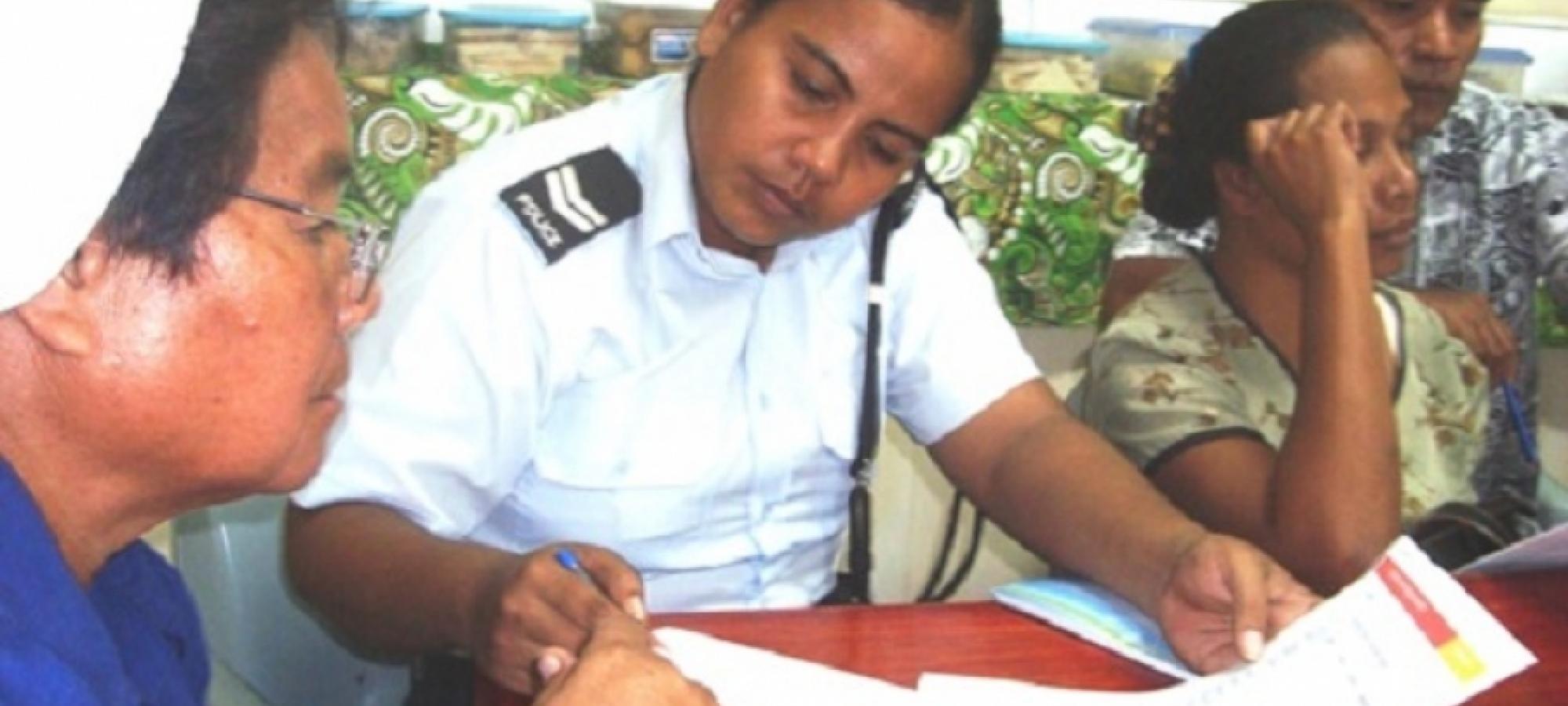
Wednesday 2 Oct 2014, Secretariat of the Pacific Community (SPC), Suva, Fiji –
Since 2013, four Pacific Island countries: Kiribati, Solomon Islands, Tonga and Samoa, passed domestic violence legislation to protect their citizens from violence against women and girls, which is prevalent in these countries and around the region.
Violence against women has broad and lasting impact on the well-being of women and girls, families and communities, including on the emotional, physical and psychological well-being of the survivors. Domestic violence also impacts national development by creating a burden on national social systems and services such as health care, police, legal aid, crisis centres and other response services. It affects household incomes when family members miss work as a result of violence, contributing to negative impacts on national incomes. Violence against women and within the family is a human rights violation, depriving women and children of their right to a safe and secure family life.
In Kiribati, the government has taken crucial steps to support a first training workshop for the stakeholders involved in implementing its Te Rau N Te Mweenga Act (Family Peace Act for Domestic Violence), which aims to ensure the safety and protection of all people, including children, who experience or witness domestic violence. The Act, passed by parliament in April 2014, recognises that domestic violence, in all its forms, is unacceptable behaviour and a crime.
The one-week training workshop coordinated by the Kiribati Ministry of Women, Youth and Social Affairs (MWYSA) in partnership with the Secretariat of the Pacific Community Regional Rights Resource Team (SPC RRRT) addressed the importance of human rights and its application to the role of the relevant agents such as the police, school authorities, counsellors, health providers and social service providers in implementing the Act. In addition, the training provided an opportunity for the implementing agents to analyse the Te Rau N Te Mweenga Act and to get a better understanding of their roles as they prepare for the enforcement of the legislation.
Police Inspector Eribwebwe Takirua shared the observation that the training had changed attitudes of police to become advocates against domestic violence.
‘Domestic violence is always regarded as a private matter and we as police officers can challenge that. This is the right time, where we can prepare the police officers before the Act becomes effective so they know their roles and responsibilities as outlined in the Act. The police department is dominated by men and we need to change their mind-set and behaviour towards those affected by domestic violence.’
Teoraiti Tetoa, Principal Nursing Officer and Gender Based Violence Coordinator for the Kiribati Ministry of Health, said that as a result of the training the health service providers now have a better understanding of their roles.
‘We have to understand our role in implementing the Act, and to know how to deal with victims of violence and more importantly working closely with the MWYSA, the counsellors such as Safe Net and police on domestic violence cases.’
Sister Rosarin Talaua, Director of the Kiribati Crisis Centre, added that it is important for the social service providers to know how to advise their clients.
‘It is important to know the law, and to know how to advise our clients in getting a restraining order as well as advising them about their human rights and how they can be protected under the law in domestic violence cases. It’s also important to have good relations with the police and this training also promotes that,’ Sister Talaua said.
Romulo Nayacalevu of SPC RRRT said, ‘The training was responding to the passing of the Kiribati government’s new domestic violence legislation, the Te Rau N Te Mweenga Act. The process has involved many years of advocacy for a legislative response to the issue of domestic violence, and the government is to be commended for its efforts in passing the law earlier this year after widespread consultation throughout Kiribati. Today we see the eagerness in the key stakeholders including the police, health, education officials and community advocates to ensure the successful implementation of Te Rau N Te Mweenga.’
It is anticipated that this training will pave the way for a series of training workshops in the outer islands targeting police officers and other key players so that they can also execute their roles and duties as stipulated in the Act. The Te Rau N Te Mweenga Actwill become effective later this year when the President assents to the Bill.
SPC has been providing support to the Government of Kiribati to implement the national approach to support the elimination of sexual and gender-based violence since 2011, as well as earlier assistance in 2009 in supporting a task force of advocates and providing a set of drafting instructions on violence against women legislation that is compliant with global human rights standards.
For more information, contact Jilda Shem, SPC RRRT Communications Officer on +679 330 5994 or email [email protected].
Photo caption: Kiribati stakeholders at the workshop in Tarawa last week.



